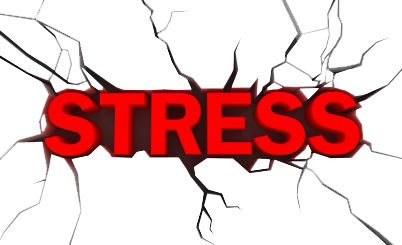Trying to understand whether stress is “good” or “bad” for you is sometimes difficult. It is the stand that we take towards our stress that matters. Our attitude, as well as our mindset towards stress, includes taking responsibility and being accountable for our stress, will ultimately determine the outcome of how we manage and transform stress into something good.
Is stress bad for me?
The science of stress of the past was deemed to be harmful.
The science of stress also tells us that stress is most likely more harmful when the following are true:
- You feel inadequate with your stress;
- It isolates you from people, and
- It feels utterly meaningless, without purpose, and against your will.
The new science of stress based on evidence-based research is that stress is harmful, except when it is not!
- Stress increases the risk of health problems – except when people give back to others.
- Stress increases the risk of dying – except when people have a sense of meaning and purpose in their lives.
- Stress increases the risk of depression – except when people discover that there is meaning in suffering.
- Stress can be paralyzing – except when people perceive themselves to be capable.
- Stress can be debilitating – except when it helps one perform.
- Stress can make people selfish – except when it makes them unselfish and has empathy for others.
For every harmful outcome, one can think of, there is an exception that nullifies the excepted association between stress and something bad. These exceptions are often replaced with unexpected benefits. What is interesting about these exceptions is that they are hardly exceptions at all. Things that protect us from the dangers of stress are attainable.
Choosing to strive and achieve your most important values makes it easier for you to find meaning and purpose when managing and coping with everyday stress, and by so doing, one won’t feel so alone in one’s suffering. Examining your body’s stress response as a resource may well allow you to trust yourself to be able to deal with pressure and rise to challenges.
Expressing compassion towards others, as well as encouraging them to accept and acknowledge their challenges, will provide them with a sense of hope and encouragement, and may even help them to understand and balance their stressors.
These strategies are not only accessible, but they also don’t require much effort. People often think that they can avoid stress but unfortunately, this turns out to be impossible and even self-destructive.
As Kelly McGonigal Ph.D., says, ” the better question for each of us to ask ourselves as individuals trying to cope with stress, might be: Do I believe I can transform stress into something good?”.
Building resilience
The following new science of stress Power words will help you to build resilience to your stress:
- Accept
- Acknowledge
- Attitude
- Embrace (challenges)
- Strengths (your)
- Values (your values system hierarchy)
- Opportunities
- Goals (meaningful, purposeful, achievable)
- Suffering (gives rise to meaning)
- Transformation
- Self-tendance (self)
- Why? (always ask the question why? even if you know the answer)
If one adopts the new science of stress principles, then one will experience eustress. Self-doubt is replaced with confidence, fear becomes courage, and isolation turns into a connection. There is indeed meaning and purpose in suffering from stress; however, be grateful that you have allowed experiencing stress in whatever way it presents itself.
In answering the question, ” just how bad is stress for you? and based on the new science of stress principles, you will be able to adopt the concept of attitude and attitude modulation. We are wired for stress and stressful events but it is our mindset that determines as to whether or not we are going to “fight”, “freeze” or stress.
The antidote is to accept, acknowledge, and change our attitude towards our stress. As human beings, we have the ability to choose the way we think, feel and react, but at the same time, we also have to be accountable and responsible for our actions.
The Stress Less Clinic recognizes the need for guiding and coaching people to cope and manage their stress, anxiety, depression, and trauma challenges. Visit our website and make an appointment with one of our Qualified Practitioners.















